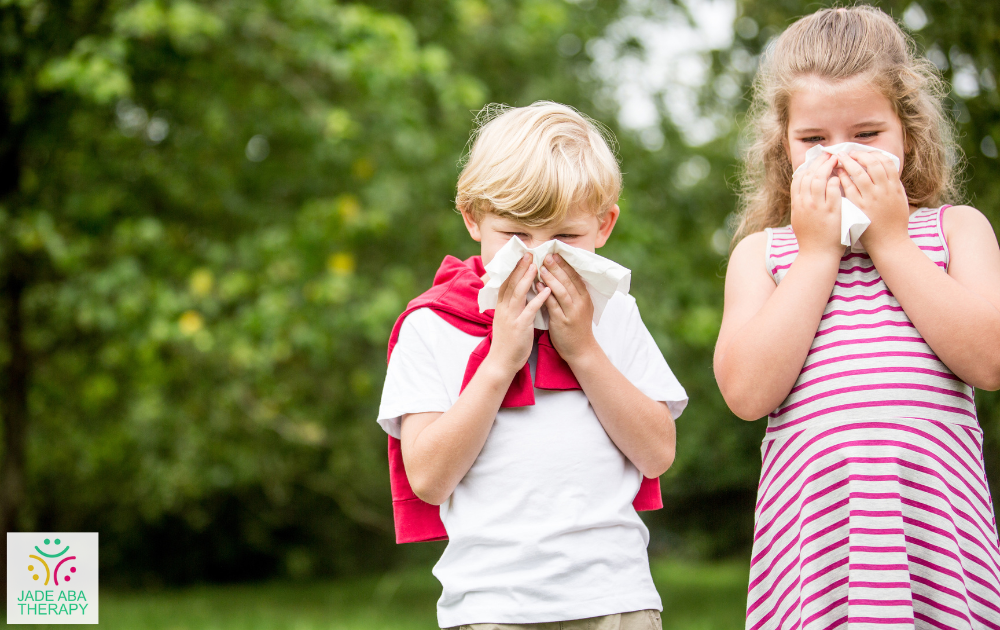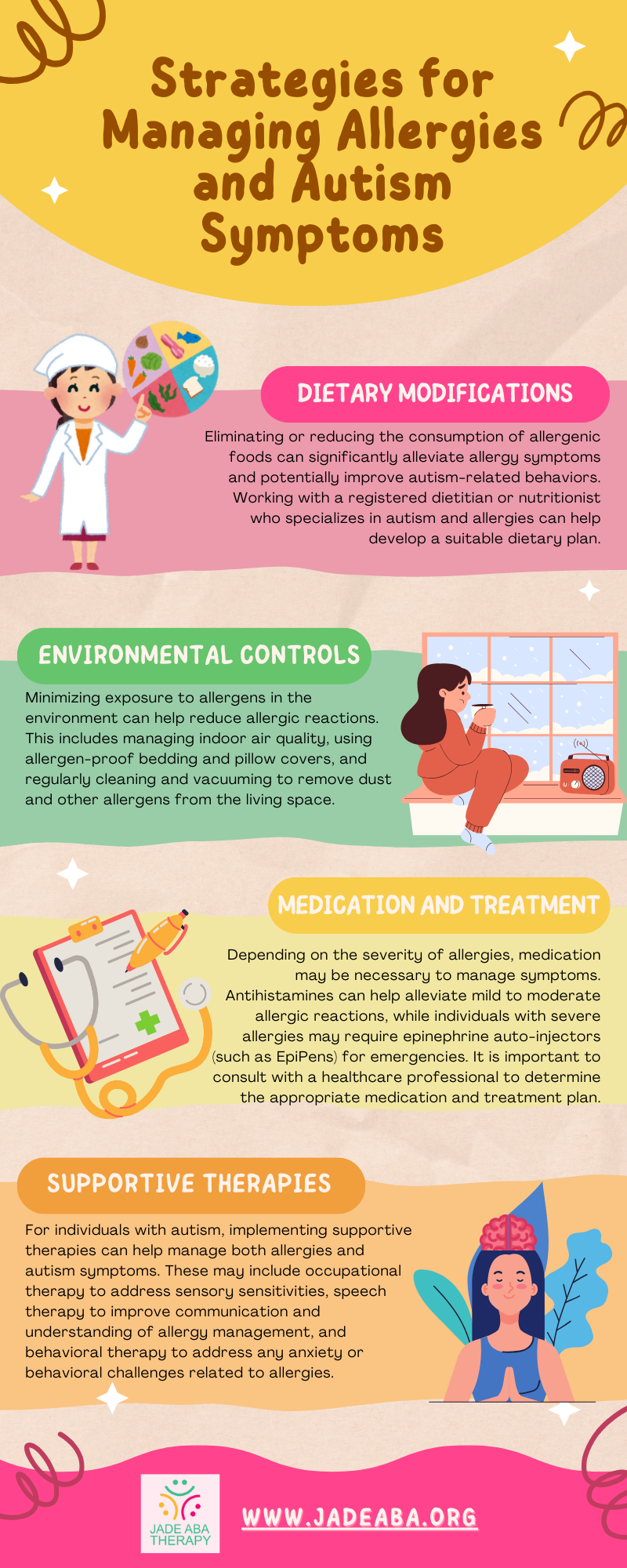The relationship between autism and allergies has been a subject of interest and research in recent years. Understanding this link is important for parents, caregivers, and individuals with autism spectrum disorder (ASD) as it can impact their overall well-being and management strategies.
In this article, we’re going to find out whether autism and allergies actually share a connection or not.

The Prevalence of Allergies in Autism
Studies have indicated that individuals with ASD are more likely to have allergies compared to those without ASD.
In fact, a study published in JAMA Network in 2018 found a significant positive correlation between allergies and ASD in children, with children with ASD being twice as likely to have a food allergy as children without ASD. Rates of allergies, especially food allergies, are higher in children and individuals with ASD compared to those without ASD.
It has been observed that some common food allergens, such as dairy, eggs, soy, wheat, and corn, frequently trigger allergic responses in individuals with autism.
Additionally, gastrointestinal complaints, including stomach pain, diarrhea, and constipation, are more prevalent in children with ASD, which can be attributed to food intolerances.

The Immune System and Allergic Response in Autism
Several studies have found abnormal immune function in individuals with ASD, characterized by an increased frequency of recurrent infections and autoimmunity.
Large cohort studies have shown increased levels of immunoglobulin E (IgE) and immunoglobulin G (IgG) in children with ASD, possibly predisposing them to higher rates of allergies compared to non-ASD children.
The immune system plays a crucial role in allergic responses. In individuals with autism, immune dysregulation may contribute to the development of allergies. The exact mechanisms behind this relationship are still being researched, but it is believed that alterations in the immune system’s response to allergens may contribute to the increased prevalence of allergies in individuals with ASD.

Food Allergies and Autism
When exploring the connection between autism and allergies, it is important to consider the role of food allergies in individuals with autism spectrum disorder (ASD). Recent medical research has found a significant association between food allergies and autism, shedding light on the potential impact of allergies on autism symptoms.
A study conducted from 1997 to 2016 analyzed a large sample of children, including those diagnosed with autism spectrum disorder. The study found that approximately 11.25% of children with autism reported having a food allergy, in contrast to 4.25% of neurotypical children with food allergies.
This suggests that there is a higher prevalence of food allergies among individuals with autism.
Impact of Food Allergies on Autism Symptoms
Food allergies can have a significant impact on the symptoms and well-being of individuals with autism.
Autistic children may experience gastrointestinal issues such as stomach pain, diarrhea, and constipation, which can be attributed to food intolerances. In fact, research has shown that individuals with autism are more likely to be allergic to certain foods, including dairy, eggs, soy, wheat, and corn.
The presence of food allergies in individuals with autism can lead to inflammation throughout the body. This inflammatory response can manifest in physical and behavioral symptoms, such as stomach pain, lethargy, hyperactivity, irritability, and repetitive behaviors, though these can also be attributed to several autism-related medical conditions.
These reactions can further exacerbate existing autism symptoms and potentially impact the overall quality of life for individuals with autism.
Managing food allergies in individuals with autism requires careful attention and support from parents, caregivers, and healthcare professionals. Identifying and diagnosing food allergies through allergy testing is essential to determine specific allergens that may be triggering adverse reactions.
Once identified, implementing strategies to manage and minimize exposure to allergenic foods can help alleviate symptoms and improve the overall well-being of individuals with autism.

How to Manage Allergies in Individuals with Autism
Managing allergies in individuals with autism requires a comprehensive approach that includes proper testing and diagnosis, as well as strategies to manage both allergies and autism symptoms.
By addressing allergies effectively, we can potentially improve the overall well-being and quality of life for individuals on the autism spectrum.
Allergy Testing and Diagnosis
Allergy testing is typically conducted to determine whether an individual with autism has allergies.
Skin testing and blood work are commonly used methods to identify specific allergens that may trigger allergic reactions. These tests help to determine whether the individual has true food allergies or other types of allergies.
Common food offenders that may be tested include milk, gluten, soy, corn, and egg proteins. Identifying these allergens can be crucial in developing appropriate management strategies and dietary modifications to alleviate symptoms and improve the individual’s overall health.
Strategies for Managing Allergies and Autism Symptoms
Once allergies have been identified, it’s important to implement strategies to manage both allergies and autism symptoms effectively. Here are some strategies that can be helpful:

By implementing these strategies, individuals with autism can effectively manage their allergies and potentially experience improvements in their overall well-being. It is important to work closely with healthcare professionals, including allergists, pediatricians, and therapists, to develop a personalized plan that addresses both the unique needs of the individual and their allergies.
Sources:
https://www.thetransmitter.org/spectrum/autistic-children-prone-food-skin-respiratory-allergies
https://www.news-medical.net/health/Autism-Spectrum-Disorder-and-Allergies.aspx
https://www.autismspeaks.org/expert-opinion/can-food-allergies-aggravate-autism-symptoms
https://allergyasthmanetwork.org/news/allergies-asthma-and-autism